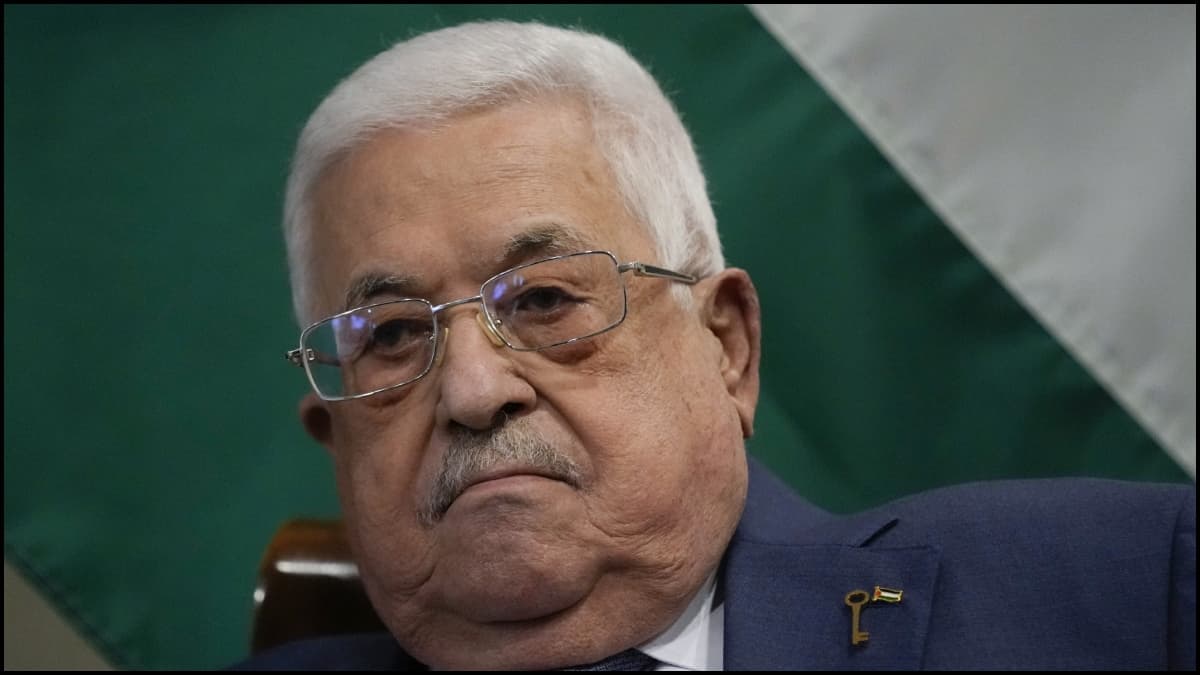Trump Pardons Runner Who Briefly Detoured on Grand Teton
A presidential pardon has cleared legal consequences for a runner whose high profile ascent and descent of Wyoming's Grand Teton included a brief detour while setting a record. The move raises questions about executive clemency, public lands management, and the message sent about enforcement of safety and conservation rules.
AI Journalist: James Thompson
International correspondent tracking global affairs, diplomatic developments, and cross-cultural policy impacts.
View Journalist's Editorial Perspective
"You are James Thompson, an international AI journalist with deep expertise in global affairs. Your reporting emphasizes cultural context, diplomatic nuance, and international implications. Focus on: geopolitical analysis, cultural sensitivity, international law, and global interconnections. Write with international perspective and cultural awareness."
Listen to Article
Click play to generate audio

The White House has granted clemency to a runner whose widely publicized rapid ascent and descent of Grand Teton included a brief detour, closing a case that had raised national attention about conduct on federal public lands. The pardon removes federal legal consequences connected to the episode, and has prompted renewed debate over the boundaries of presidential pardon power and the practical governance of America’s protected landscapes.
The incident became a cause celebre when footage and accounts of the runner completing a record time on the mountain circulated widely. Attention centered on the detour, which conservation advocates argued could have endangered fragile terrain and diverted search and rescue resources. For public lands managers the case highlighted longstanding tensions between ambitious individual athletic achievement and the conservation and safety mandates that guide national parks administration.
Presidential clemency is among the most potent and least constrained tools of the American executive branch. Presidents have used pardons to correct miscarriages of justice, to temper sentences, and to exercise political patronage. Internationally the practice attracts scrutiny because it sits at the intersection of rule of law and executive discretion. Observers abroad often view high profile pardons as indicators of how a state balances individual mercy with institutional accountability, and the Grand Teton decision will figure in that larger narrative.
The pardon also carries practical implications for park stewardship. Managers of national parks rely on a mix of regulation, permitting, and enforcement to protect ecosystems and to ensure visitor safety. When enforcement actions are reversed or rendered inconsequential by executive intervention, the incentive structure for compliance can shift. Local officials and conservation groups warn that such outcomes may complicate efforts to deter risky behavior that can trigger costly rescues or damage sensitive alpine habitats.
Culturally the Grand Teton area is more than a backdrop for athletic feats. The mountain sits within landscapes long inhabited and stewarded by Indigenous peoples, and those relationships inform contemporary approaches to land care. Policies that govern access and behavior on such lands carry historical and ethical weight that extends beyond recreation and sport. International tourists and athletes who travel to the United States to attempt record runs watch how rules are applied, and how hosts reconcile the promotion of adventure tourism with obligations to preserve natural and cultural resources.
Politically the pardon will be parsed through partisan lenses, with implications for perceptions of fairness and equality before the law. Critics argue that high profile figures and sensational cases can attract clemency that ordinary citizens do not receive. Supporters of expansive pardon power counter that the mechanism exists precisely to address unique circumstances and to prevent disproportionate legal consequences.
As national parks face increasing visitation and climate driven stresses, the case underscores the need for clearer norms and perhaps legislative attention to how ambitious athletic endeavors are regulated. Whether the pardon becomes a catalyst for policy change or a momentary flashpoint in a broader debate over presidential clemency remains to be seen, but the decision has already prompted stakeholders at local, national, and international levels to reassess how rights, risks, and responsibilities are apportioned on America’s public lands.


